Fair trade is a movement that seeks greater social, economic and environmental justice in the trade system. It works predominantly with producers in developing countries, who are more likely to experience exploitation. Many consumer goods can be bought locally, such as local produce. But when we’re importing goods, it’s important to make sure that the producer of those goods received a fair wage. Products that have been verified or certified by a third party are part of the fair trade movement.
What are fair trade products?
For Rosette Fair Trade, fair trade products are those that are certified or verified by a third-party body with high socioeconomic and environmental standards. Some of those standards vary slightly from body to body, but they typically include things like:
- Payment of a fair price to the producer
- Safe working conditions, including hours worked per day
- Prohibition of forced labour and/or child labour
- Non-discrimination and gender equality, as well as freedom of association
- Transparency and accountability throughout the supply chain
- Fair trading relationships, where the needs of all parties are discussed in good faith
- Environmental protections, including controlling pesticides and other chemicals
- Capacity-building, so that producers’ growth continues over time
What is genuine fair trade?
You may see the phrase “genuine fair trade” scattered throughout the website. For Rosette, genuine fair trade products are those that are verified or certified by a body that has high fair trade standards. So in our view, the highest standards are held by:
- Fairtrade International (Fairtrade Canada)
- Fair Trade Federation (FTF)
- Small Producers’ Symbol (SPP)
- World Fair Trade Organization (WFTO)
- Fair For Life (IMO)
While some other bodies claim to be fair trade, Rosette does not feel that their standards have the same positive socioeconomic impact. For this reason, we don’t consider them to represent genuine fair trade. All of the fair trade products that we sell are certified or verified under one of the bodies listed above.
Who are the main actors in the movement?
There are many actors in the fair trade movement that play different roles in bringing the movement to life!
Certifiers and verifying bodies
Certifiers and verifying bodies are the ones that oversee fair trade products. For example, you may have seen the symbols below on various products, and that’s because it’s part of the process of ensuring that a product is fair trade.
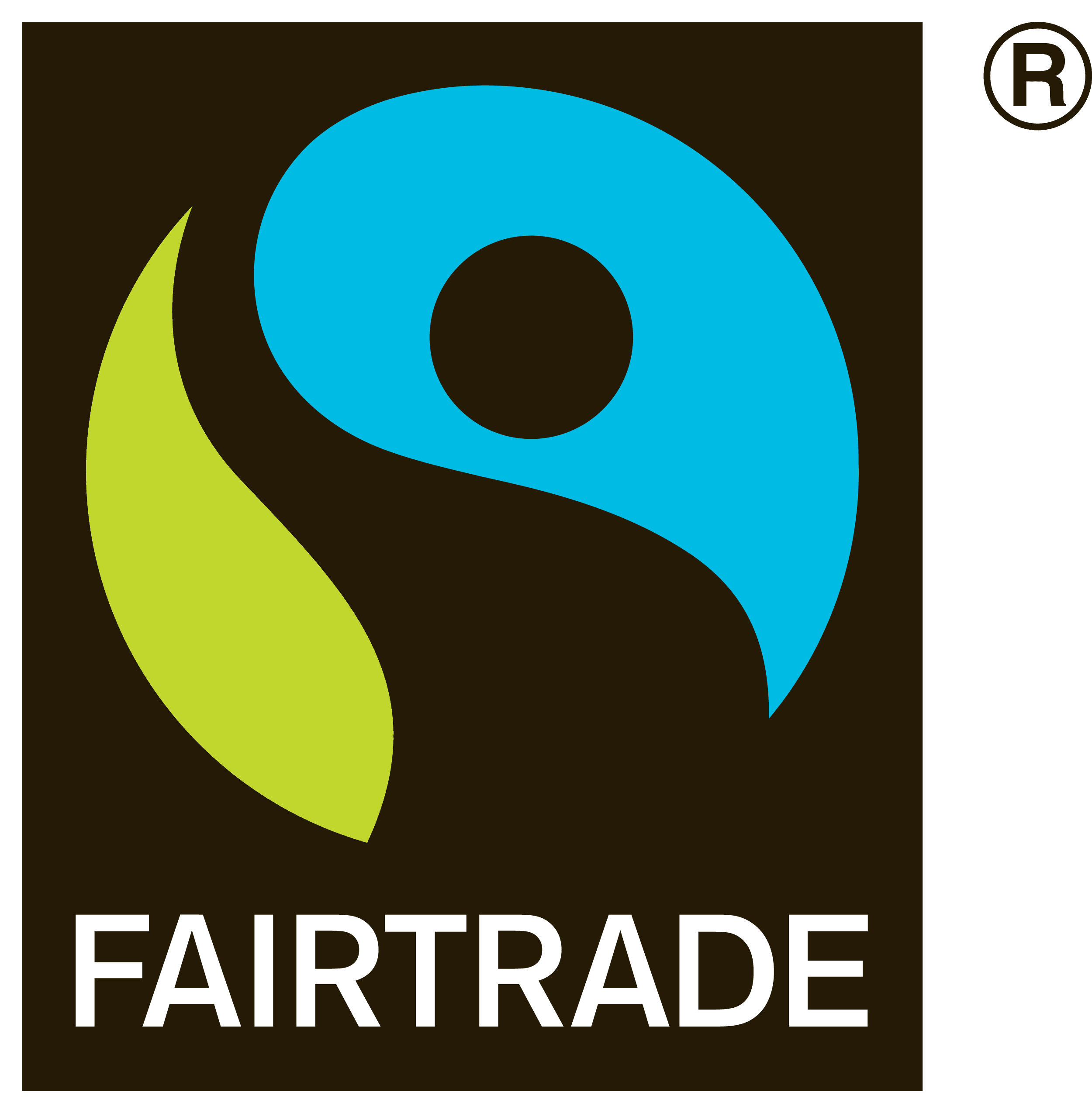
Fairtrade International/Fairtrade Canada
Fairtrade International (formerly also called FLO-Cert) is an internationally-recognized certifying body with its head office in Germany. Many countries have their own affiliated organization, like Fairtrade Canada here in Canada, for example. This certifier primarily certifies products that are agricultural in nature (food, cotton, and so on). When Fairtrade International certifies something, it’s a specific product, rather than a whole company or brand. For this reason, a company might have some products that are certified fair trade and others that are not.
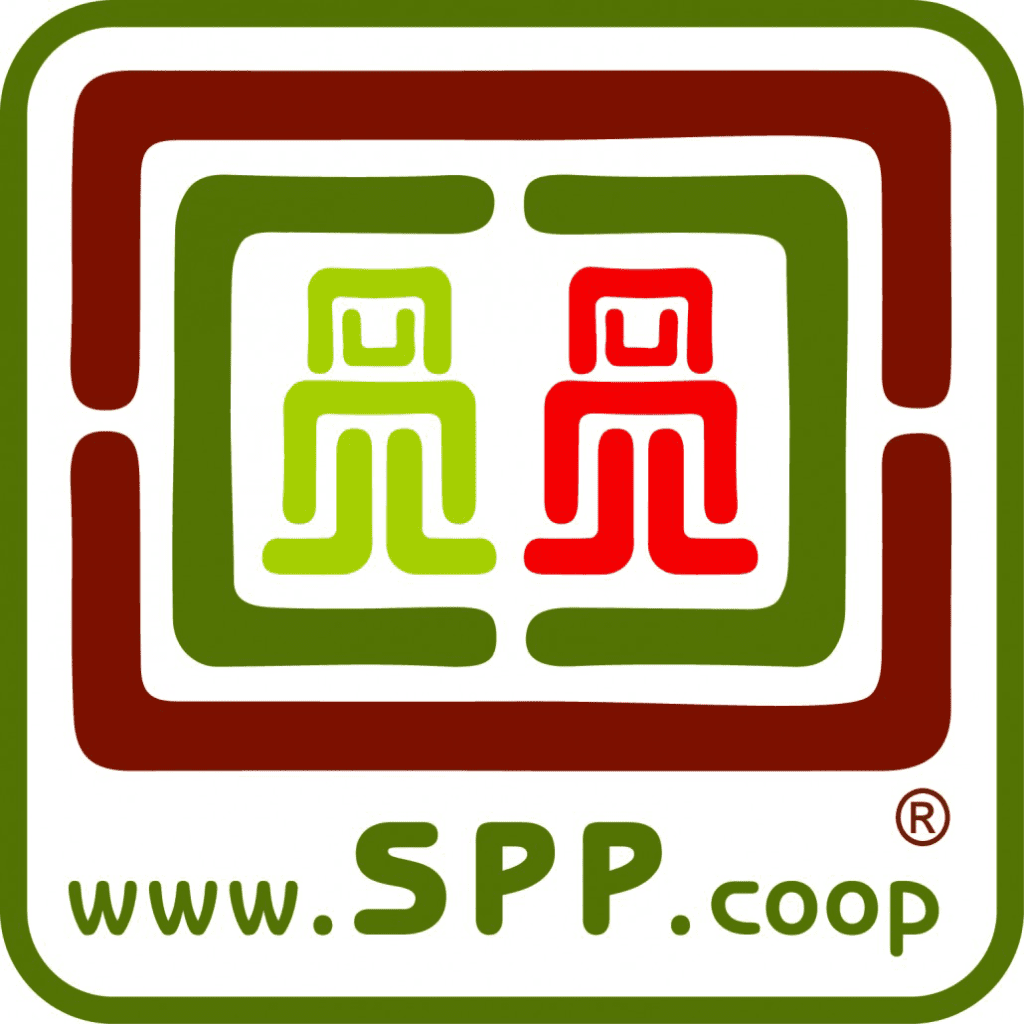
Small Producers’ Symbol (SPP)
The Small Producers’ Symbol (SPP) is a certifying body that works closely with Fairtrade International (above). The SPP only recognizes small producers, as it acknowledges the importance of small producers for social and environmental sustainability. It’s the newest certifier in this list, and perhaps because of that, it mainly focuses on certifying the most widely-available fair trade products: coffee, sugar, etc. Like in the case of Fairtrade International, when the SPP certifies something, it’s that particular product, not a whole brand or company.
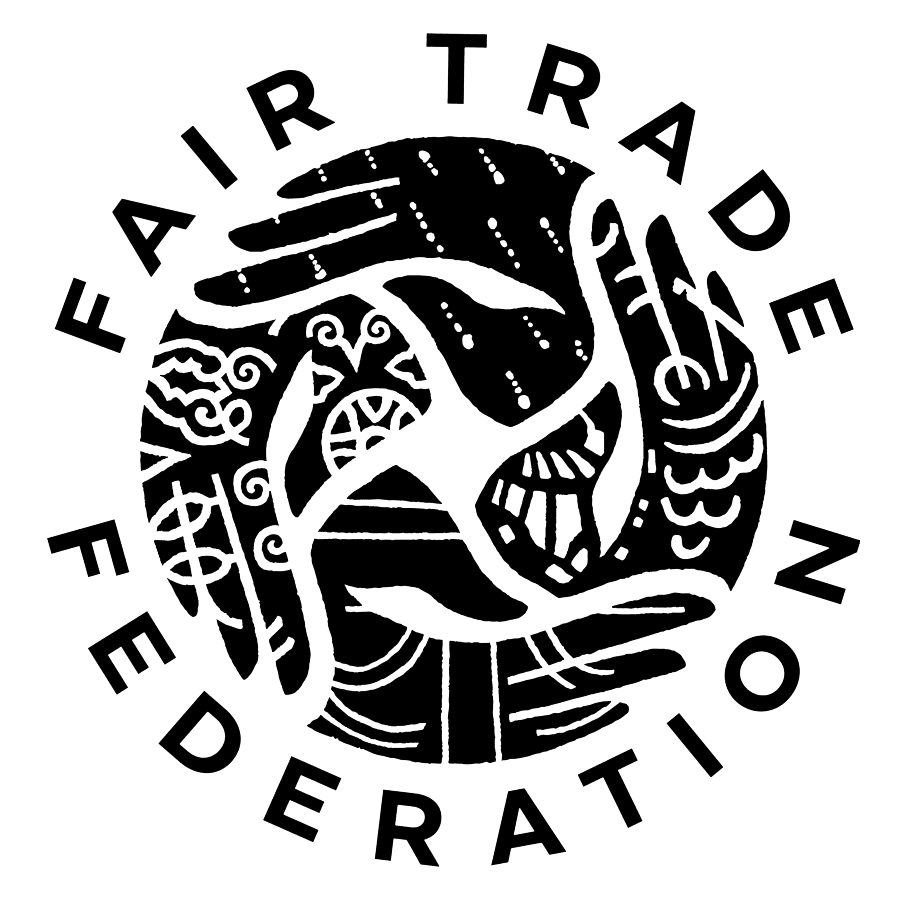
Fair Trade Federation (FTF)
The Fair Trade Federation (FTF) is widely-recognized as a membership organization for fair trade makers and artisans. It does include food products (such as coffee, spices & fruit) under its umbrella, but the majority of items it oversees is in the handmade products category. The FTF is a membership organization, and that means that a company or brand as a whole is verified. So rather than needing to get each individual product certified, a whole producer group or company gets the stamp of approval. This is especially helpful for handmade items, as each individual item may be unique.
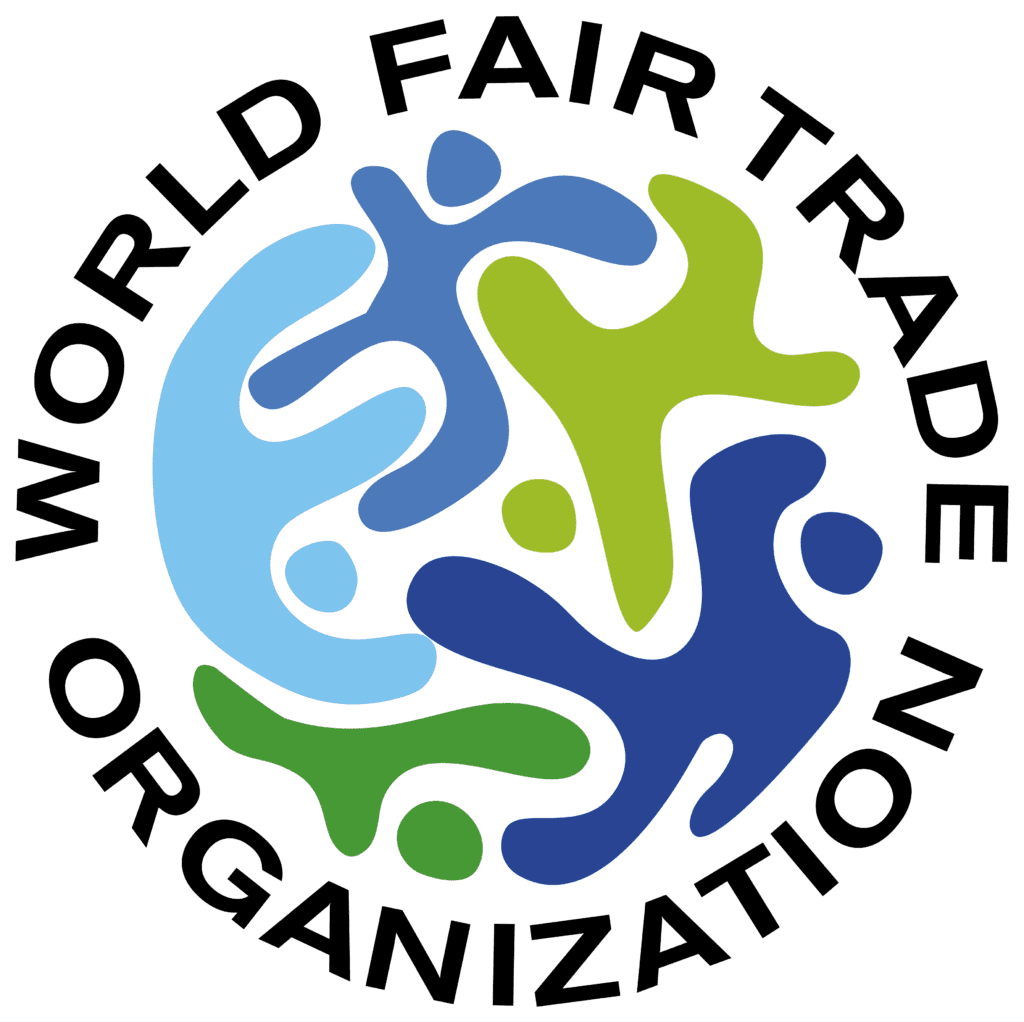
World Fair Trade Organization (WFTO)
The World Fair Trade Organization (WFTO) is another membership-based organization (ie. company- or producer-wide verification). The FTF (above) works closely with the WFTO, which (perhaps most importantly) is the organization that put forth the 10 Principles of Fair Trade. These principles are used by many organizations, civil society groups, and even certifying bodies to educate folks around what fair trade is, and to keep fair trade standards in line with a pretty cohesive fair trade system overall. Some fair trade bodies may focus more on some principles of fair trade than others (for example, Fairtrade International [above], which ocuses mostly on agriculture, may favour principles around safe and fair labour and working conditions, while Fair For Life [below], which originated from an organic certification, will have perhaps the strongest environmental standards). But when all is said and done, they all uphold these principles to at least some degree.
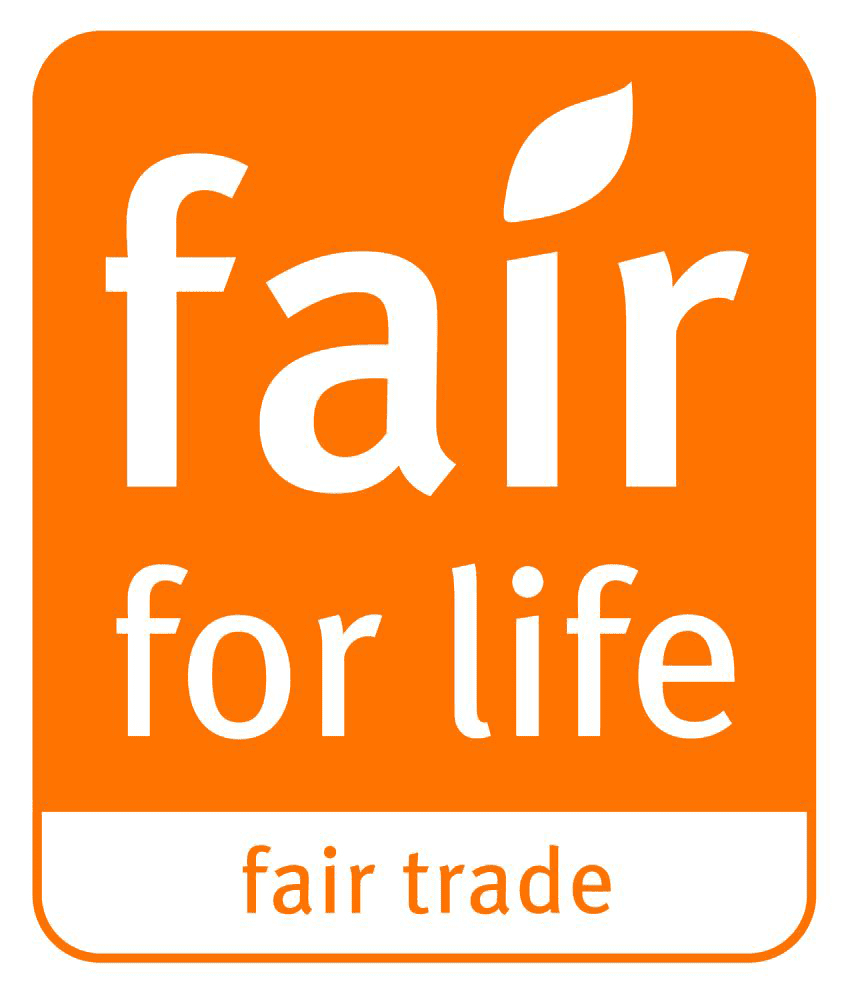
Fair For Life
Fair For Life (FFL) is a lesser-known certifier that originated from the IMO organic certifying organization. Like Fairtrade International and the SPP, Fair For Life will certify specific products, rather than a whole brand or company. And because it was started by an organic certifier, FFL has very strong environmental standards, perhaps stronger than any other organization in this list. While we don’t have a lot of FFL-certified fair trade products in Canada, the number is slowly increasing. Zatoun Oil is one of the Canadian fair trade brands that Rosette carries, for example.
Fair trade businesses
Fair trade businesses are the ones that create and usually distribute the products that we buy, using the raw materials from the producers. These are the ones who put their brand name on the product packaging and promote their fair trade products. Some examples of these businesses: Zatoun, Ten Thousand Villages and Ark Imports.
Retailers/distributors
That’s us! Retailers (or distributors) are responsible for reaching more consumers by carrying fair trade products from various companies. Distributors are more likely to also sell products to other retailers, while retailers usually only sell directly to the consumer. A few examples of retailers: Rosette Fair Trade, your local health food store that carries fair trade.
Producers
Fair trade would be nothing without the producers. They’re the ones that work the fields to grow the cocoa beans for your chocolate bar, or the cotton for your shirt. It’s hard work! So the fair trade movement works hard to ensure that producers receive a fair wage for their labour.
Sometimes when people talk about producers, they’re also talking about artisans who make fair trade products like handicrafts. These are people who do other types of skilled labour like weaving fabric or upcycling items into beautiful home decor.
Some examples of these producers: Sanctuary Spring in Philippines, Flowering Desert Project in India, Hope Jewellery in Peru.
Consumers
That’s you! The person who consumes fair trade products once they’re available for purchase. They play an important role in the fair trade movement because they invest money in the system and keep it going!
Civil society groups
This is a general term to mean nonprofit organizations, activists and other community groups. They promote fair trade products and educate folks about fair trade in general. They educate consumers, as well as retailers and politicians, for example, to encourage more people to support the movement. Some examples of these groups: Oxfam Canada (NGO), AQCÉ (education network) in Quebec.
